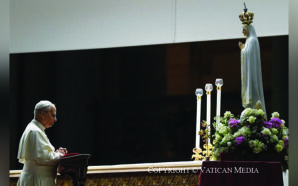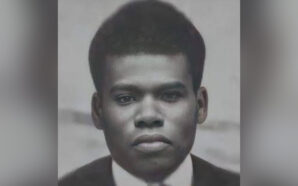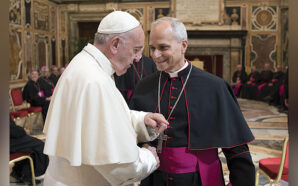Homily for the Thirty-Third Sunday in Ordinary Time
Readings: Proverbs 31:10-31; 1 Thessalonians 5:1-6; Matthew 25:14-30
15 November 2020
This week we hear Matthew’s penultimate parable of the kingdom. Like so many of these Matthean parables, a simple comprehensible and logical story is given an arresting violent twist which disturbs the comfort of the listener who is simply going along with the flow of the story. We need to be attentive to how Jesus’ original listeners would have heard the parable and what they would have made of it; then we need to ask what the Matthean community with the written gospel account would have made of it, and what was the author wanting to convey; and then we need to make sense of the parable and give it some bite in our contemporary situation.
Listen at https://soundcloud.com/frank-brennan-6/homily-151120
Jesus tells the story of three servants entrusted with the master’s money while the master goes away for a long time. When the master finally returns, he asks each servant to give an account of himself. The servant entrusted with five talents, which was a hell of a lot of money for a servant to hold, traded wisely and made a profit of a further five talents. Similarly, the servant entrusted with two talents also earned a profit equivalent to the amount given. These two are congratulated, invited to share in the master’s happiness and assured they will be trusted with more to come.
The third servant entrusted with only one talent was afraid and risk averse. He did not dare trade or invest with it. He hid the talent in the ground for safe keeping. When the master returned, the servant dug it up and gave it back to the master. The master describes this servant as wicked and lazy. He may have just been scrupulous and careful.
The first two servants are to be rewarded, being able to keep their invested gains. The third servant is to get nothing. ‘As for this good for nothing servant, throw him out into the dark where there will be weeping and grinding of teeth.’ Jesus wants his disciples to be impulsive people of action, risk takers, confident emissaries willing to take on the world. Remember the first four disciples when called left their nets immediately and followed him, or left their boat and their father and followed him.
When it comes to the Matthean community which was working out its Jewish and Gentile shared identity, scripture scholar Daniel Harrington tells us that “The parable of the talents contrasted the enterprising and successful Jewish-Christian missionaries (the first two servants) and the fearful and/or lazy Jewish movement that we call ‘formative Judaism’ (the third servant).”[1] Some were wanting to evangelise boldly; others were urging restraint, wanting to remain within the contours, confines and regulations of Jewish faith and practice.
When it comes to us, there are some of us in the Church who are wanting to press the boundaries proclaiming the message and even structuring our Church in ways attractive to modern listeners. There are others who think that the message and Church structures are unalterable. Some of the latter group, particularly those in authority, think it unimaginable that changes be made even though there are demonstrable shortcomings.
During the week, the Vatican released the long awaited 450 page report on Theodore McCarrick who was a cardinal and one-time archbishop of Washington. There’s no doubt that McCarrick did a lot of good in his time. But he also did dreadful harm. He was a longtime Vatican insider who also became a Washington insider.
Soon after his appointment as archbishop of Washington in 2000, and on the recommendation of the US State Department, McCarrick was awarded the Eleanor Roosevelt Human Rights Award by President Bill Clinton. At the awards ceremony, Clinton said: “In tough places, where civilians are struggling to get out, chances are you will find Archbishop Theodore McCarrick working hard to get in and to help them. …Two years ago I was honoured to send him as one of my representatives on a groundbreaking trip to discuss religious freedom with China’s leaders. This year, he has been a tireless and effective leader in promoting debt relief for poor countries….At the same time, the Archbishop is much beloved for practicing at home what he preaches around the world. This year, as he pressed the United States to fund debt relief, he forgave the $10 million in debts of poor parishes in his Newark diocese.”
Long before McCarrick’s appointment to Washington, alarm bells were ringing inside the Church hierarchy. Back in 1992 Cardinal O’Connor from New York forwarded to McCarrick an anonymous letter he had received alleging wrongdoing by McCarrick. McCarrick brazenly and confidently wrote back: “You might want to know that I have shared [the letter] with some of our friends in the FBI to see if we can find out who is writing it. I am afraid he is a sick person and someone who has a lot of hate in his heart.” By October 1999, O’Connor wrote a six-page letter to the apostolic nuncio setting out the many reports and rumours about McCarrick warning how inappropriate it would be to promote him to any higher offices. Pope John Paul II dismissed the concerns and went ahead authorising the Washington appointment and then appointing him a cardinal. McCarrick was such an insider that his supporters were able to circumvent the usual checks and balances.
Over the years, I have met John Carr who is the founder and director of the Initiative on Catholic Social Thought and Public Life at Georgetown University in Washington DC. Having spent over 20 years as director of the Department of Justice, Peace and Human Development at the United States Conference of Catholic Bishops, Carr had a lot to do with McCarrick. Carr was once a seminarian who had been sexually abused by a cleric. When the Vatican report was released this week, Carr said:
“As a survivor of clergy sexual abuse and someone who worked closely with former Cardinal McCarrick, I welcome the Vatican’s report on his abusive activity, how it was hidden and covered up and who enabled this betrayal of trust and failed to act to protect victims and the Church. For me, the former Cardinal’s repeated abuse of young people and children, his constant lies, and his ongoing refusal to accept responsibility and apologise are a greater betrayal of trust than what I experienced more than 50 years ago as a young seminarian.”
Carr who was always interacting with journalists and Church officials within the Washington beltway did not go public about his own experience of abuse within the Church until September 2018 “I heard myself saying that silence and secrecy were at the core of the problem. And then I realised I had been silent and I had my own secrets.” He described himself as an increasingly impatient, exhausted survivor and believer. Losing patience with the lack of Church reform, he said he was troubled “Hearing from priests who feel they are bearing the burden for the failure of their leaders.” His exhaustion was compounded by the realisation that the voice of the Church “which needs to be heard on undocumented people, the unborn, the poor, has been compromised and that’s a terrible cost.”
The two American cardinals who best understand and empathise with the plight of victims are Cardinals Cupich and O’Malley. Cupich said the report is “A watershed moment as it pulls back the curtain on a culture of clericalism that has separated the clergy from the people they have been ordained to serve. While the report makes for painful reading, it is fearless in admitting the failures of Church leaders. The report is another example of Pope Francis’ commitment to responsibility, accountability and transparency to victim-survivors and all others who have been harmed by the sexual abuse of minors and other misconduct by the clergy and bishops of the Catholic Church.”
Cardinal O’Malley said “It is no longer enough for the Church to simply ask for forgiveness, to pledge transparency and apologise. All survivors, who have been courageous in coming forward, forcing the Church to face the crimes committed by clergy, religious and other personnel deserve our care, support and honesty. We have an obligation by all means possible to hold accountable those responsible for such reprehensible violations of human dignity and ensure that every effort is being made to assure the safety of our people.”
Fr Boniface Ramsey was the one who first blew the whistle on McCarrick 30 years ago. Ramsey was working in a seminary and had received many credible reports that McCarrick as a local bishop was inviting seminarians to his beach house insisting that they share his bed. Ramsey took action but nothing happened and McCarrick kept being promoted and praised by Church and state. Last week Ramsey expressed his satisfaction that at last the truth was out. But he warned, “I think clerical culture is just built into the fabric of the clergy … it’s very hard to get rid of something like your clerical culture.” He said that the clerical caste mentality is ‘not going to change unless the Church is almost universally discredited, or persecuted,’ and only then would the clerical culture subside.
Those resisting change are like the servant with one talent. They’re terrified. They feel responsible to preserve what has been entrusted to them at all costs. They bury their one talent in the ground. Let’s hear again those words of Jesus “As for this good for nothing servant, throw him out into the dark where there will be weeping and grinding of teeth.”
Yesterday we celebrated the 40th anniversary of the establishment of the Jesuit Refugee Service (JRS). It was set up on the 73rd birthday of Pedro Arrupe then superior general of the Jesuits. Arrupe having survived the atomic bomb at Hiroshima as a young Jesuit, was very troubled by the plight of refugees at the end of the Vietnam War. He sent cable messages to Jesuit superiors around the world sharing his distress at the suffering of these people. He asked them what they could do to help bring relief to refugees and displaced persons in their own regions. He received a positive response, with numerous offers of personnel, medicine and funding. So JRS was established to coordinate these efforts to accompany, serve and advocate for refugees. Launching the initiative, Arrupe said, “Saint Ignatius called us to go anywhere where we are most needed for the greater glory of God. The spiritual as well as the material need of more than 16 million refugees throughout the world today could scarcely be greater. God is calling us through these helpless people.”
On Friday night, there was an online American celebration of the 40th anniversary of JRS – and in the style and on a scale which only the Americans can produce. Speakers included President-Elect Joe Biden, Dr Anthony Fauci and former Secretary of State Madeleine Albright. Biden told the audience of JRS supporters: “The United States has long stood as a beacon of hope for the downtrodden and the oppressed, a leader in resettling refugees and our humanitarian response. I promise, as president, I’ll reclaim that proud legacy for our country.”
Also speaking was Filippo Grandi, now the United Nations High Commissioner for Refugees. Grandi recalled how as a young man he was given a task as a volunteer at Aranyaprathet on the Thai-Cambodian border in 1987 by the regional JRS coordinator, the Australian Jesuit Mark Raper. That initial experience opened Grandi’s eyes to a life of service to refugees. Grandi told us, “I was tasked with the job of participating in what we called, a bit pompously to tell you the truth, ‘a survey of the refugees’ self-reliance activities’ or something like that. The most fun part of it was to distribute live chickens and piglets to refugees who had taken part in the survey.”
Having been weighed down all week with the findings of the McCarrick report, seeing the shortcomings of leaders like Pope John Paul II laid bare, and despairing that too many in our Church leadership have been like the servant burying the one talent in the ground, I found myself rejoicing that there are many people of good will who are like those first two servants investing all the talents entrusted to them. To think that a young man like Grandi might look back now as the UN High Commissioner for Refugees with delight and humour to a very modest attempt to make a difference as a volunteer with the Jesuit Refugee Service on the Thai Cambodian border 33 years ago. Those words of Jesus in today’s gospel make sense: “Well done, good and faithful servant; you have shown you can be faithful in small things, I will trust you with greater, come and join in your master’s happiness.”
[1] Harrington, D. J., The Gospel of Matthew, Liturgical Press, Collegeville, MN, 2007, p. 355
Fr Frank Brennan SJ is the Rector of Newman College, Melbourne, the Distinguished Fellow of the PM Glynn Institute, Australian Catholic University, and the former CEO of Catholic Social Services Australia (CSSA).








